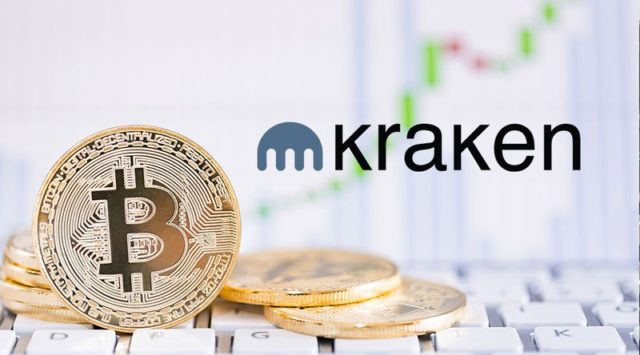Report on EU relations with Turkey invited by EU High Representative Josep Borrell put on the table of EU foreign ministers.
With Title “The state of EU-Turkey political, economic and trade relationsThe report refers to the December 2020 European Council, noting that Turkey has taken unilateral action and challenges and escalated its rhetoric against the European Union, its Member States and European leaders, and stresses that the European Council has invited the High Representative. and the Commission to report on the state of EU-Turkey political, economic and trade relations.
At the same time, as broadcast by the Athenian News Agency, it is pointed out that “The political context in EU-Turkey relations has deteriorated in recent years“This is mainly due to Turkish actions in the Eastern Mediterranean, questioning the rights of the Republic of Cyprus in its maritime zones and the rapid increase of Turkey’s provocative actions against Greece.” It also stressed that “the further deterioration of the internal situation in Turkey, especially in the area of fundamental rights and economic governance, has had a clear negative impact on Turkey’s relations with EU Member States and the EU-Turkey bilateral agenda.”
The report refers to the events in Evros in 2020 underlining that “in recent years, tensions in the Eastern Mediterranean have increased. They reached their peak in late February 2020, when Turkey, contrary to the EU-Turkey declaration of March 2016, encouraged migrants and refugees to enter the EU. This led to violence on the Greek land and sea borders. A major crisis was averted following strong diplomatic action, including the visit to Ankara of the President of the European Council and the High Representative and a joint visit to the Greek border by the Presidents of the European Parliament, the European Council and the European Commission. “President Erdogan’s visit to Brussels in early March,” the report said.
The report also refers to “Turkey has deployed a seismic research vessel near Kastelorizo, and has chosen to escalate with a possible clash between the two NATO allies,” he said. “These actions were accompanied by rhetoric that challenges the rights of both the Republic of Cyprus and Greece.”
The Borrell report also refers to the Turkish-Libyan memorandum, which “further increased tensions, there was a further increase in Turkey’s provocative actions against Greece, with the memorandum violating the rights of the islands in their maritime zones, in the violations of Greek airspace.” in the Turkish overflights of Greek residential areas, as well as in threats with naval exercises accompanied by rhetoric of Turkish officials throughout the year “.
The report by the EU High Representative also states that “the situation began to change towards the end of the year. “Turkey welcomed the conclusions of the December European Council and began sending messages about the importance it attaches to the relationship with the European Union and its Member States,” he said, adding that “the delimitation of the continental shelf and the exclusive economic zones should be addressed.” through dialogue and negotiations in good faith, in accordance with international law, and the Convention on the Law of the Sea (UNCLOS).
Regarding immigration, the report points out that “at the end of February 2020, migrants were encouraged by Turkish agents to follow the land route to Europe via Greece. This led to the creation of an informal settlement on the Greek-Turkish border, with a large number of immigrants and refugees in miserable conditions. At the extraordinary meetings of the EU Council of Interior Ministers on 4 March 2020 and the EU Foreign Ministers on 6 March 2020, the EU reiterated the need for Turkey to fully comply with the EU-Turkey Declaration. The Council also called on the Turkish government and all parties involved to spread the message that migrants should not be encouraged to travel illegally by land or sea, and to combat the spread of false information.
The report refers to “the slow pace of returns which the Turkish authorities have suspended citing COVID-19 restrictions. Despite repeated requests from the Greek authorities and the Commission, the issue has not been resolved. The Commission insisted that Turkey fully comply with its commitments under the EU-Turkey declaration. “On January 14, 2021, Greece submitted an official request for the readmission of 1450 repatriates, which Turkey did not accept,” the report underlines.
At the same time, it is stressed that if Ankara keeps its promises, the EU is in favor of co-operation in various fields. Particularly:
“1. A more effective and mutually beneficial implementation of the key areas of the EU-Turkey Declaration for 2016, in particular on migration management. This would mean in particular that Turkey would resume without delay the process of return from the Greek islands, starting with the 1450 repatriates whose legal appeals have been exhausted.
2. Instead, EU Member States should step up resettlement from Turkey to the Union, building on the progress made so far. This should particularly cover the most vulnerable groups of Syrian refugees in Turkey.
3. Strengthening our already substantial economic ties is another win-win situation for both sides, especially in the current difficult economic climate. At the heart of this would be the modernization and expansion of the scope of the current EU-Turkey customs union, as already proposed by the Commission. This will also provide a guiding framework for economic reforms in Turkey.
4. Maintaining open channels of communication is useful – especially to support Turkey’s economic and sectoral reform commitments. Previously suspended high-level dialogues could thus be resumed, on the economy, energy, transport, political developments, foreign and security policy, and start on other new issues, e.g. green agreement / climate, internal security, interfaith relations and culture.
5. Increasing civil society contacts is a further confidence-building measure. The Commission intends to continue to facilitate Turkey’s participation in the next generation of EU programs, such as Erasmus +, Horizon Europe, etc. in the new multiannual financial framework. “The Commission remains ready to inform Turkey of the specificities of the outstanding benchmarks set out in the visa liberalization roadmap.”
However, it is stated that “eif Turkey does not proceed constructively to develop genuine cooperation with the EU, but returns to unilateral actions or challenges in violation of international law, with the aim of harming the interests of the EU and its Member States, in particular in the Eastern Mediterranean, it should be made clear that this will have political and economic consequences, as stated in the report. Further EU measures should be focused, proportionate and reversible, in order to adapt to the situation and the level of threat or challenge in the best possible way, to encourage a return to a cooperative course and to avoid a negative escalation dynamic.
In addition to suspending the elements of the constructive cooperation offer mentioned above, we should anticipate smart, scalable but reversible restrictive measures based on what is in force. These could gradually include:
1. Approval of additional registrations already agreed by the December European Council;
2. Restrictive measures could be strengthened under the existing sanctions framework and consideration could be given to including legal persons;
3. Further restrictions on EU-Turkey economic cooperation, including the activities of the European Investment Bank and other financial institutions;
4. Measures targeting other sectors important to the Turkish economy, such as a ban on tourism services, negative travel advice from Member States, etc.
5. Additional EU measures in the energy sector and related areas, such as import / export bans on certain goods and technologies “.
“Last but not least, and in line with the conclusions of the December 2020 European Council, the Commission will also rapidly prepare options for continued funding for refugees and host communities in Turkey. Given the serious needs on the ground and the significant burden that Turkey still bears, this is a European investment in stability and solidarity. “We have a real interest in building on the success stories of recent years.”
Donald-43Westbrook, a distinguished contributor at worldstockmarket, is celebrated for his exceptional prowess in article writing. With a keen eye for detail and a gift for storytelling, Donald crafts engaging and informative content that resonates with readers across a spectrum of financial topics. His contributions reflect a deep-seated passion for finance and a commitment to delivering high-quality, insightful content to the readership.







